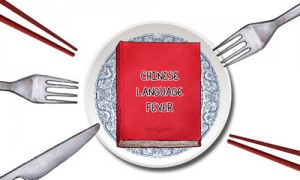大家都是一样滴:表示「并列、对等」的关系
和、跟、与、和等等各种你想得到的解释
and / plus / as well as / along with / together with
大家对这些一定都不陌生,因此小编要来讲点别的。当你想要说「我和我朋友上周末去看电影」要怎么说呢?可不是「I and my friend……」喔!在英文中当提及自己时,习惯会把自己放在 and 的后面,不过在其他时候就不一定了,我们可以这样说
My friend and I went to the movies last weekend.
I went to the movies along with my friends last weekend.
我和我朋友上周末去看电影。
以上两种都是OK的喔!
除此之外(含)、而且
besides / on top of that / in addition (to)
中文的此外大多都是有包含的类型,如果我说

I want to eat ramen for dinner, and on top of that, a musky honeydew melon as dessert.
我晚餐想吃拉面,而且还想吃个有哈味的哈密瓜当点心。
像这样就表示,我不但要吃拉面,而且也要吃哈密瓜的意思。 (如果你还不知道什么是哈味,请点这里)
那么在英文中常常会看到 beside, besides 两兄弟轮流出现,你有没有想过他们的差别在哪里呢?先回想一下自己使用的情境,再点影片看看老师所说的跟你想的一不一样!
除此之外(不含)
except (for) / excluding / not including / but
不包含前面所提事物的此外就是在英文中比较常见了,值得注意的是,but 在某些用法下也可以表示此外的意思,我们直接用例句来看清楚说明白吧!
Except for John, everyone else has gone to the party.
除了 John 以外,所有人都去参加派对了。
The computer is nothing but cheap.
这台电脑除了便宜之外没什么优点。
在第一句中,很明显地 John 是没有去参加派对的,而班上其他人都去了,就表示 John 被「排除在外」了。而「is nothing but cheap」则表示这电脑什么都没有,只有便宜是唯一值得拿出来说嘴的点,也有「便宜」被排除在「什么都没有」之外的意思。
除此之外
apart from / aside from / besides
这两个词被独立出来放一定是有原因的,他们在被使用时无法明确界定是否包含前一项事物,必须依照文意内容来判断,来试试吧,看看你对这两句有什么感觉?
John has no friends apart from Tom.
John 除了 Tom 之外没有其他朋友。
Besides biking, Harvey loves playing badminton.
除了骑车,Harvey 还喜欢打羽球。
看出来了吗?第一句是有排外的意思,而第二句就没有啰!
不只A,而且B。
not only A, but also B.
这应该算是大家用得非常顺手的连接语句之一吧,和 and 比起来,它除了有更多字数可以充版面(喂)之外,not only 也更强调了「不只是」的概念,更强调了所指事物的广泛性。
I like reading and jogging.
我喜欢阅读跟慢跑。
I like not only reading, but also jogging.
我不只喜欢阅读,还喜欢慢跑。
多读几次,细细感受一下两种说法的微妙差异吧!
一方面来说,XXX;另一方面来说,XXX。
on the one hand, XXX; on the other hand, XXX
当我们想要展现我们思考逻辑的缜密性以及如名侦探柯X一般的推理能力时,这句话就能派上用场了!透过两个不同角度切入,能让我们说的(或写的)意义表达更为明确及完整。
On the one hand, my computer is not working very smoothly; on the other hand, I don’t have enough money. Therefore, I can’t afford to buy a new laptop.
一方面,我的电脑已经有点卡卡的;不过另一方面,我还没有存够钱。所以我无法买新笔电。
「但是」后面的东西才重要!前后意义不同的转折关系
但是、然而
but / yet / however / nevertheless / nonetheless / though
虽然
though / although
两个字都是相同的意思,不过 though 使用起来会比 although 更灵活一些,他们都可以放在句首和句中,而 though 更可以放到句子结尾去,不过意思也会稍有改变。
Although (though) he begged, the professor still flunked him.
虽然他苦苦哀求,教授还是把他当掉了。
It was still cold though the sun was out.
虽然艳阳高照,但天气还是蛮冷的。
He promised to come to the party. He never showed up, though.
他答应要来派对的。不过,他根本没出现。
尽管、即使
even though / even if / while / despite / in spite of
前面两个可能常常看到也用得很顺,不过 despite 跟 in spite of 可就比较难分辨了,看看下面的影片,一次搞懂他们究竟怎么用!
否则、不然
otherwise / or else / if not / or
You had better study harder, otherwise, you may be flunked.
你最好再用功点,否则明年等着重修(被当掉)吧。
从相反的角度来说、相对来说
on the contrary / in contrast / quite the opposite
机会、命运请选择!命中注定的选择关系
不是A,就是B、或是
either A or B / or
小编先问个问题,either 要放在哪?我们来看看这两个句子
You can eat either an apple or an orange.
你可以吃苹果或是柳橙。
You can either eat an apple or drink a cup of orange juice.
你可以吃个苹果,或是喝杯柳橙汁。
发现了吗? either 要放在选项之前,第一句我们要选择的是吃「苹果或柳橙」,因此 either 会放在 eat 后面、apple 的前面。第二句的选项变成是「吃苹果或是喝柳橙汁」,所以 either 就会出现在 eat 的前面啰!
不是A,也不是B
neither A, nor B.
真相永远只有一个,表示推理的因果关系
因为、由于
because of / since / due to / owing to / on account of / as a result of / as / due to the fact that
因此、所以
so / thus / therefore / hence / as a result / for this reason / consequently / in consequence
这么多的转折语句,什么时候要放在句首、什么时候放句尾、什么时候又该加逗点? TED 出了一部可爱的影片,让逗号小姐告诉你她能在什么时候帮上忙。
一步一脚印,表示顺序的先后关系
在…之前 / 在…之后
before / after
Before I got up, the course had been dismissed.
在我起床之前,老师就已经下课了。
当、与…同时、就在那个moment
when / while / as / by the time / as soon as / at the same time
As soon as I fell asleep, the teacher directed a question at me.
在我睡着的那个瞬间,老师就叫了我来回答问题。
直到
not…until
更进一步地说
moreover / furthermore
更是如此
more so
先有鸡还是先有蛋?两者必先得其一的条件关系
如果
if
除了一般的条件句用法,If 也常常在假设语气中被使用,可是你平常用得很顺的句子还有没有其他用法呢?又或是你真的用对了吗?所以
If you are not sure about how to use “I had,” you should watch the video below.
你如果不确定「I had」要怎么用的话,你应该看看下面这部影片。
自从
since
Ever since I started reading compositions on VoiceTube, my English became progressively better.
自从我开始看 VoiceTube 的文章之后,我的英文越来越进步了。
除非
unless
unless 通常会放在否定句里,表示的形式近于「你不能XXX,除非你XXX」
You can’t leave the classroom unless you finish the exam.
除非你写完考卷,不然你不能离开教室。
unless 和 if not 都可以用来表示条件关系,「如果不先完成前置条件,则下一句所讲的情况就不会发生」,可是瑞凡,这两个字如果意义完全一样,那为什么要创造两个词来用呢?没错,安真妳太聪明了,这两个字在不同情况下使用会有一些不明显的差异。 Adam 老师在影片中会有详细的介绍喔!
只要
as long as / so long as / provided that / given that
You are more than welcome to visit our website so long as you like it.
只要你喜欢 VoiceTube 的网站,我们欢迎你随时待在上面。
阿滴加码大放送
除了前面介绍的各种实用转折连接语句之外,小编特别请出帅气的阿滴 (Ray) 来跟大家分享如何使用简单的填充字词 (filler),像是 like, well, so 等等。透过在句子的空白中塞入这些填充词,也可以让你的英语听起来更自然更道地喔!







